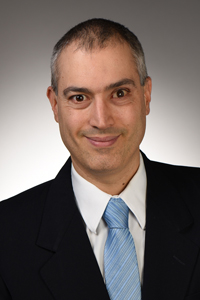This course qualifies the enrollee for 1.0 CE credit hours and the cost is $25.
Course issued: 5/2020; expires 5/2022
To register: https://apps.dentistry.uiowa.edu/ceregistration/ (log-in with CE ID is required)
The term ageism refers to age discrimination, or the prejudice by one group toward other age groups. Ageism is very prevalent and may have several negative consequences for the older populations. These negative consequences include older job applicants getting less positive ratings than young ones, older citizens facing discrimination in the form of neglect in nursing homes, media misrepresentation, an underemphasis on geriatrics in medical school, and inappropriate health care for conditions which are dismissed as “part of the aging process”. The World Health Organization considers ageism one of the most important barriers to age-appropriate health care for older adults, and dentistry is no exception. Recent development of an ageism scale that takes into consideration the specific challenges of dental care for older adults can help with assessing ageism among dental providers, and create ways to improve attitudes towards older adults when practicing dentistry. This course will emphasize ageism self-assessment, and how dentists can actively help to counter-act ageism when practicing dentistry, avoiding the unintended consequences of ageism to the quality of dental care provided and how to effectively communicate with older adults and obtain patients’ adherence to the dentist recommendations..
Participants should be able to:
Ageism definition and its consequences
Ageism consequences to health care of older adults
Ageism consequences to dental care of older adults
Ageism scales and how to self-assess for ageism
Attitudes to counter-act ageism when practicing dentistry
Avoiding the unintended consequences of ageism to the quality of dental care provided to older adults
How to effectively communicate with older adults
How to improve older patients’ adherence to dentist recommendations
 Dr. Leonardo Marchini, DDS, MSD, PhD, teaches pre-doctoral and grad students in the geriatrics and special needs program and treats patients in the faculty general practice at the University of Iowa College of Dentistry and Dental Clinics. He has been working as a general practitioner since graduating in 1996, with an emphasis in prosthodontics and geriatric dentistry. His current research focus includes geriatric dental and general health epidemiology, and patients’ satisfaction with prosthodontic treatments. He is also interested in researching about the best way to teach dentistry, with particular interest to geriatric dentistry teaching.
Dr. Leonardo Marchini, DDS, MSD, PhD, teaches pre-doctoral and grad students in the geriatrics and special needs program and treats patients in the faculty general practice at the University of Iowa College of Dentistry and Dental Clinics. He has been working as a general practitioner since graduating in 1996, with an emphasis in prosthodontics and geriatric dentistry. His current research focus includes geriatric dental and general health epidemiology, and patients’ satisfaction with prosthodontic treatments. He is also interested in researching about the best way to teach dentistry, with particular interest to geriatric dentistry teaching.